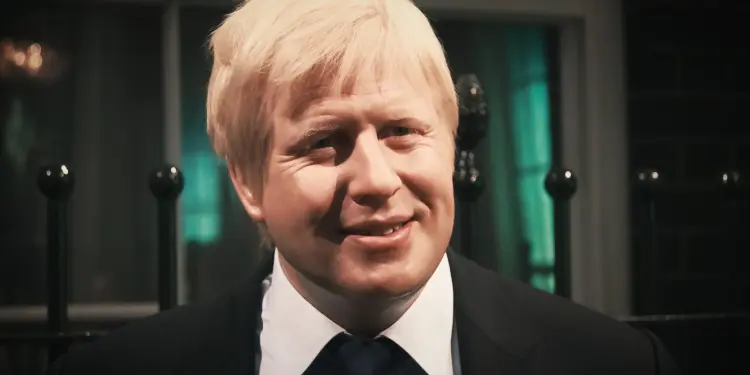Across the European continent, champagne corks would have been fizzing at the announcement that Boris Johnson had been forced to resign. For the French and Germans, the idea of being able to reset relations with the UK was impossible for as long as he was in charge. Now he is leaving, they will be hoping to have a more collegiate leader to negotiate post-Brexit issues with. Similarly, the Russians would also have been delighted to see the back of Boris. After all, it was his force of personality and energy that led to the western alliance delivering Ukraine aid once the war started.
For that reason in Ukraine, his departure will cause much anxiety. Who will replace him and what will their stance be towards supporting Ukraine at this critical time where a lot will depend on who the new leader is. Indeed, arguably part of the reason Boris has stayed in place, for now, is to ensure that British support towards Ukraine remains in place during this critical period over summer. After all, when asked if there was an issue he would resign over, he answered, if he was unable to support Ukraine in the way he wanted. It is obvious he feels this war in a way other European leaders don’t.
Nonetheless, arguably his biggest contribution has been made, the commitment by the west to support Ukraine has happened and thanks to that, they are able to stand toe to toe with Russia. His successor will be unlikely to make any dramatic changes in policy, in part because Ben Wallace has opted to remain as the Defence Secretary, where he has been an integral part of the process. Equally, if the war does drag on, that is where a new Prime Minister will start to determine British Policy. The US elections are coming ever closer and who knows what will happen the next time a budget bill to support Ukraine needs to be passed, similarly it is fair to say that France & Germany both secretly wish the war would end asap so they could start the process of normalizing relations with Russia.
With that in mind, here are some of the contenders and this is what I would expect their Ukraine stance to be:
- Rishi Sunak: He has been the finance minister in the UK for the past two years and is widely credited for the world-leading response to COVID when it comes to the economic bailout packages organized. While not all the policies worked perfectly, he is generally recognized as having made the best of a difficult situation. More recently though he has lost some of the shine, by looking to increase taxes at a time when people are facing a cost of living crisis. Indeed even within his own party, he is being called a socialist chancellor. His commitment to fiscal prudence is also the reason he resigned, arguing that the country couldn’t afford to cut taxes and implement the spending plans that Boris wanted, with Ukraine being mentioned as part of that. If he came to power, therefore, he would both recognize the need to increase spending in parts of the country that need investment and populated by swinging voters (red wall) while keeping the tax burden as low as possible. Looking at things from a Ukrainian slant, he is therefore probably the person I would least want to be the next Prime Minister.
- Sajid Javid: After Rishi, probably the one Ukrainians would want to see the back of would be Sajid Javid. In terms of what he has in common with Rishi Sunak, he also has a background in Investment Banking and was the Chancellor (finance minister) so really does understand the fiscal issues facing the UK. Especially around the cost of debt facing the country post-COVID as interest rates rise. On top of that most recently he was Health Minister, meaning he will be fully exposed to the challenges facing the NHS which in part is down to funding. Equally, while he ran for the Prime Minister job in 2019, he failed to make the final two, so I think it unlikely he wins this time.
- Nadhim Zahawi: A self-made entrepreneur, who had earned for himself over $100m USD by the time he turned 50, and the current finance minister (as of the last week), his position on Ukraine is as of yet unclear. Broadly though his fiscal position is that tax cuts should take priority. What that means for defense spending is another story. He has suggested 20% cuts across all departments to fund the tax cuts though which suggests less funding by the UK for Ukraine with him in charge. He probably doesn’t have quite the track record in Government to win the big seat, also his treachery towards Boris won’t have gone unnoticed in that within 24 hours of being given the job of Chancellor he was telling the PM to resign.
- Priti Patel: While she hasn’t formally declared yet, as the current home secretary she holds one of the three key seats of the government behind the Prime Minister. Popular with the right-wing of the party, it was her proposal to deport asylum seekers to Rwanda. She is a self-declared ‘Thatcherite’ which means a policy platform of low tax and spending.
- Liz Truss: The current Foreign Minister, she has been a hawk when facing the Russians and hyper-critical of their aggression. Therefore it is fair to say she would be looking to support Ukraine with their war. Equally, she does have a track record of U-turns. She was a documented proponent of the UK staying in the EU pre-2016, whereas since then she has sought to reposition herself as being pro-Brexit. Why does this matter? Well, she has shown she has no problem shedding an ideological policy if it no longer is the majority view. The danger for Ukrainians if she takes over, therefore, is that if all the Western allies start withdrawing support, I would argue she is unlikely to be prepared to stand alone supporting Ukraine. Equally, she has a real chance of making the top 2.
- Jeremy Hunt: The Former Foreign Minister and to his credit, also a successful entrepreneur who cashed out of the company he co-founded by 40, earning over $10m in the process. He has a mixed record in Government, when Health secretary he was highly unpopular, inversely as Foreign Secretary he was doing well and only lost the job because he lost the run-off leadership election against Boris. His public stance has been that he is supportive of Ukraine and would continue to be. Nonetheless, due to his generally moderate views on lots of policy areas, he is unlikely to be the next prime minister as party members are unlikely to select him.
- Penny Mordaunt: Out of all the cabinet ministers, arguably the least well-known of the people putting themselves forward. Her background as a Navy Reservist means she has close connections to the military, which means she is likely to be supportive of continued support to Ukraine. Similarly, her policy platform i.e. pro Brexit, low tax, and small state mean she will appeal to the party membership. Amongst the MPs, they will also have noticed her intellect and debating capability in the commons, a key part of the job. The question is can she make it to the final two MPs to be put forward?
- Kemi Badenoch: While she lacks the experience of other candidates, interestingly she has secured already the backing of Michael Gove, who has been for a long time a key kingmaker within the party. While she has stated she wants to bring down taxes, what makes her stand apart from other candidates is her background both in terms of upbringing and in terms of ministerial office. Regarding Ukraine specifically, she has been a hawk in terms of policy statements. Indeed, for the Labour Party, were she to win, it would instantly neuter one of their primary attack channels, regarding the tory party being one led by the rich, for the benefit of the rich. In terms of policy platform also, she is arguably one of the most liberal in the party, meaning in principle she should be able to reach people outside the party’s core demographic. Whether that is enough for her to win the party nomination though is a question.
- Tom Tugendhat: The ultimate dark horse. After a career in the military, he shone to fame 12 months ago, when he berated the government for their botched withdrawal from Afghanistan. He leads the foreign affairs select committee in parliament which means he would be fully briefed on all aspects of the war and is likely to be one of the most hawkish amongst potential candidates. Nonetheless, his lack of experience within government is likely to act as a drag as there will be real questions around competency.
As a final point, it is worth understanding the process for how the next leader will be selected. First of all, candidates put themselves forward where they need to get a certain number of MPs supporting their application. Assuming they hit the threshold, they are then voted on by the party MPs. The Party MPs then vote until only two candidates remain, where the party membership then selects between the final two. Understanding this is critical as anyone who does not have sufficient support from the party membership is unlikely to become Prime Minister. Party Members will be looking for a leader who can demonstrate competency, and equally look to implement policy in line with Conservative values. Party members are mostly white, 40+, living outside the main cities, and property owners, to give you a sense of the demographic. With that in mind, there are only really three people I can see reaching the final two.
- Rishi Sunak
- Liz Truss
- Penny Mourdant
The others are either hoping they can persuade enough people along the way, but remain long-shots, or possibly are in it in part to get leverage for their next cabinet role. I.e. if they drop out and then swear fealty and that person wins, they will get a better job than if they never ran at all. Such is politics.
In the meantime, Ukraine waits to see from its ally who the next premier will be.




